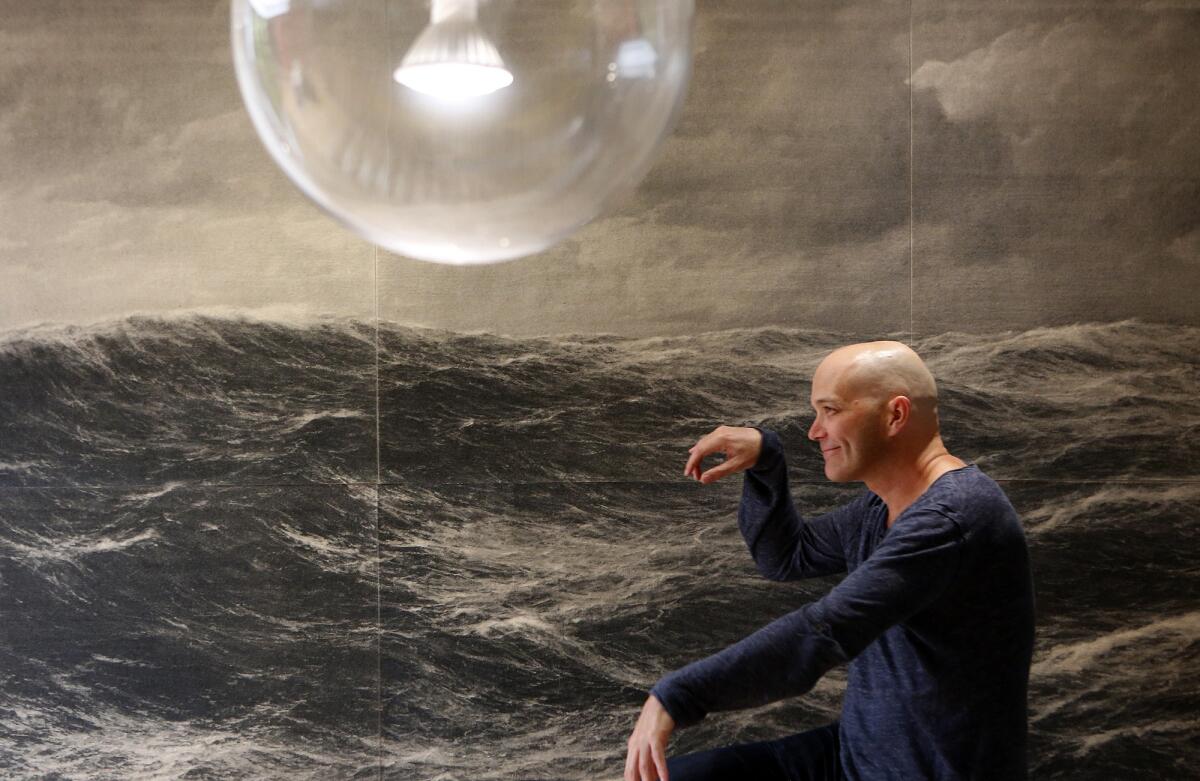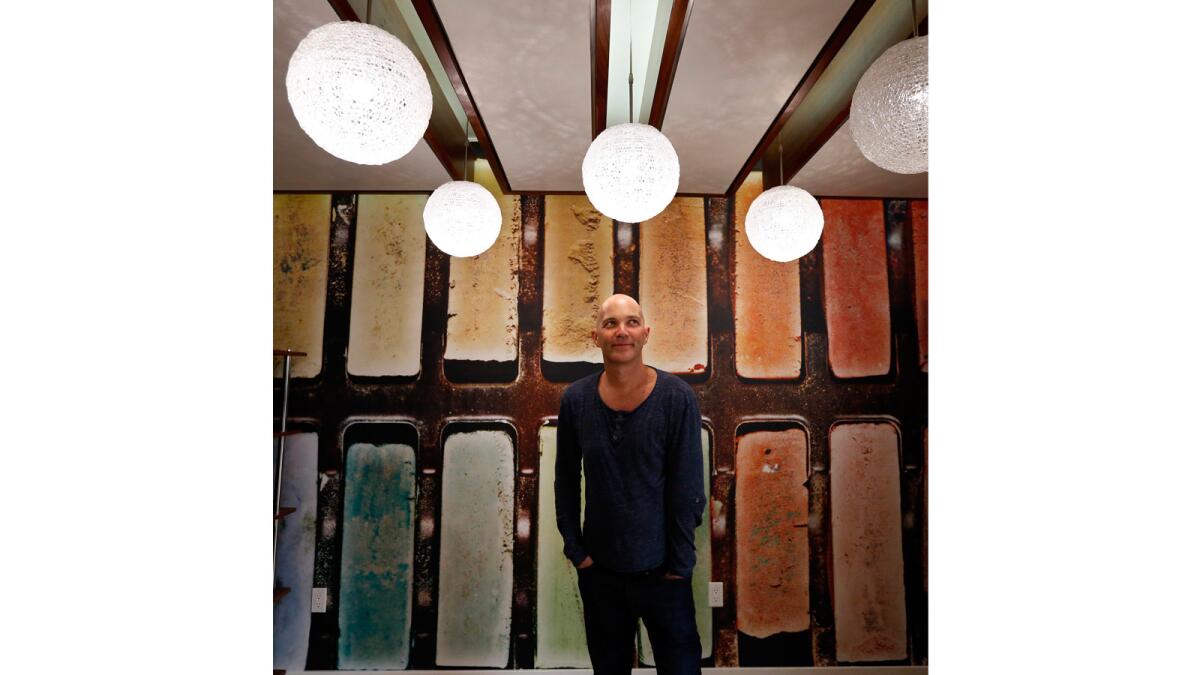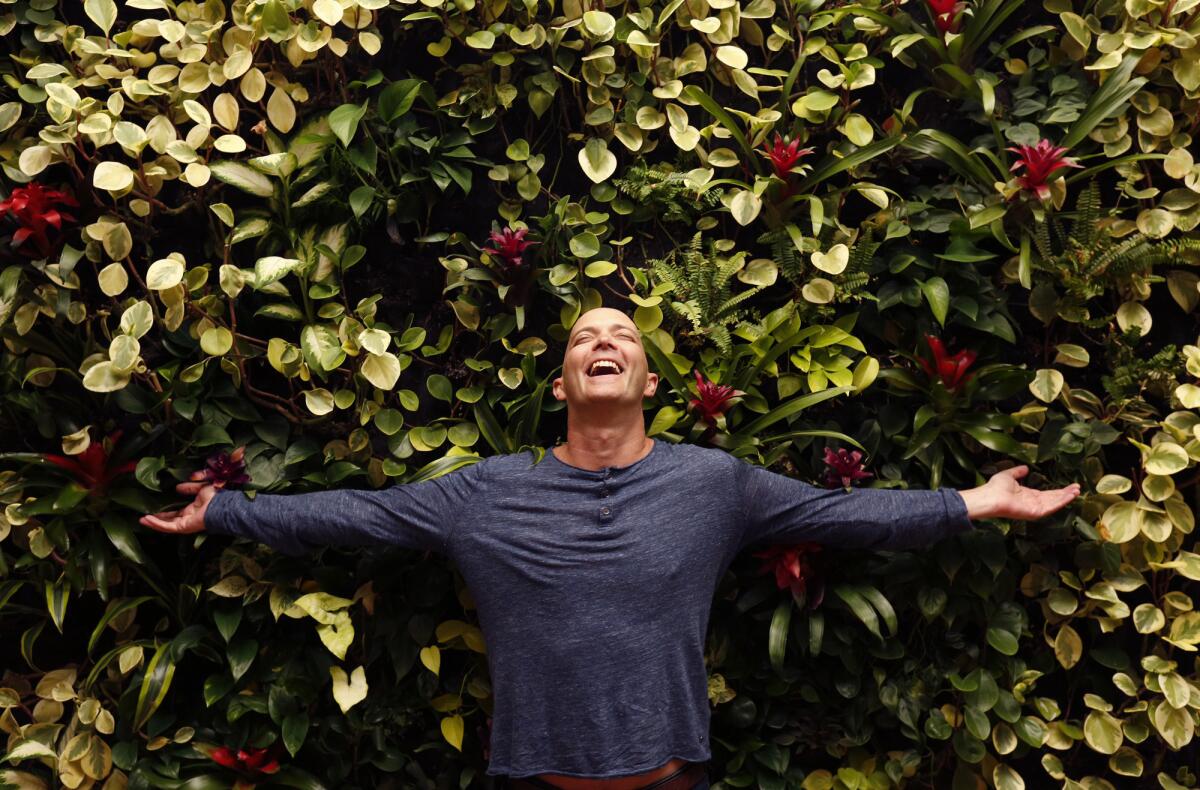Q&A: For Taylor Mac, the stage show is just part of the fight for the LGBT community

Playwright, actor, singer-songwriter and performance artist Taylor Mac.
- Share via
Performance artist Taylor Mac isn’t a fan of history. All too often, Mac says, the presence of lesbian, gay, bisexual and transgender people is erased.
Growing up in Stockton, Mac says no one mentioned LGBT people. That resulted in “a little queer kid growing up in a small violent suburban city where you’re not supposed to be queer.”
When you’re educated for 18 years with that foundation, “you don’t feel like there’s a place for you,” said Mac, 43. “That’s why I make the work that I make. They begrudgingly give us Walt Whitman, but they fight us tooth and nail to say this or that person wasn’t queer. So if they’re not going to give it to us, then we better insert ourselves.”
See more of Entertainment’s top stories on Facebook >>
And inserting LGBT people, or queering history, is exactly what Mac does in the part-stage production, part-concert “A 24-Decade History of Popular Music,” a decade-by-decade revue. Mac will perform a portion of the show at UCLA’s Royce Hall on Saturday.
The project, in the works for four years, aims to chart popular music in the United States from 1776 to 2016. The 240-year period is represented by 246 songs that Mac will perform during a 24-hour concert in the fall. To learn all of the material, the actor, producer and director is touring the production in acts across the country. Interspersed through this music is Mac’s comedic take on the men and women who lived during those times.
And through it all, Mac is in drag.
As the performer prepared for a show at UC Santa Barbara’s Campbell Hall, The Times spoke with Mac about the project the artist dubs a “radical fairy realness ritual.”

“I’m such a hybrid artist so I pull from my playwriting and acting and performance art and squish it all together,” Taylor Mac says.
Tell me about your show, “A 24-Decade History of Popular Music.”
The whole show is about what are the things that we’re holding onto that aren’t serving us now. What are the things from the past that aren’t serving us in terms of how to live our lives in this present moment and how to dream the culture forward? I use each song to kind of sacrifice something we’re holding onto, whether it’s our understanding that patriarchy should be in charge of things or our fear of being misgendered. We go down the list and just let them go, in a very fun way.
Why do you do the entire show and many of your other performances in drag?
I do it in my kind of drag, which is very different from drag that a lot of people are used to. My drag is not polished. It’s a conversation about homogeneity and heterogeneity. What I mean by that is that I’m trying to talk about the full range of who we are in relation to the topics that my individual pieces are addressing. So I wanted to look chaotic and beautiful and polished and amateur and ugly and masculine and feminine and crazy and insane and totally calm and peaceful at the same time.
Do the looks inspire the work you do or did the work inspire the looks?
Stephen Sondheim always says, “Content dictates the form.” So it’s about what am I talking about and which form do I need to use to help me talk about that thing. Since I really wanted to explore heterogeneity, I couldn’t just look like a guy up on the stage, and I can’t look like a guy who’s trying to look like a woman on stage. I need to look like something else. And also, when I’m on stage, it’s so much about showing the audience what I look like on the inside.
Critics have praised you in recent years, but when you first started, did people get it?
It’s been a very 1-inch-at-a-time career for me. When I first began, I was in basement bars with an audience of 10 people. I started off trying to get in the theaters and not really being able to figure out my way in. But eventually the audiences grew and the theaters started calling me.

I use each song to kind of sacrifice something we’re holding onto, whether it’s our understanding that patriarchy should be in charge of things or our fear of being misgendered,” Taylor Mac says.
Did people accept you during those early years?
I think there was always a group of people who were coming that was into it, primarily queers. And then as it started to expand. We’ve played South Carolina, and it’s surprising that those rich, old people are into it. That I find exciting because I think of myself as an Elizabethan fool in the sense that the fool is there to talk to the court, to look for the power structure and make fun of it, to bring that structure down a couple notches.
Who do you count as inspirations or influences for your performance art?
There are so many, but this particular show was inspired by Nina Simone, Patti Smith and Tiny Tim. The reason is because all three of them use a certain kind of vulnerability in making their work where they’re more interested in the story than they are interested in musical perfection or polish.
The portion of the 24-hour show that you’ll be doing at UCLA is the 20th century. What should people expect?
I’m such a hybrid artist so I pull from my playwriting and acting and performance art and squish it all together. It’s a concert [and], at the same time, you’ll experience the drag show that is a hoot and a lot of fun, but at the same time there is an intellectual pursuit that goes on which you don’t see in a lot of drag performances. And you’ll experience a ritual and spiritual happening in some way that isn’t connected to any religious institution or tropes about patriarchal gods.
What’s the takeaway you hope the audience has?
Preferably, I just want them to release themselves from an obstinate understanding of who they are. I’m not a teacher or anything, but I do like to remind the audience of the things they forgot, dismissed or buried, or that other people have buried for them. I think of myself as a bit of a diviner. I’m not going to go dig for the water. That’s the audience’s job, but I’m there to point it out. So I hope when they leave, they go digging for the profundity. That they feel more expansive and that they can see other people in a fuller way.
Twitter: @TrevellAnderson
-----------------------
‘A 24-Decade History of Popular Music: The 20th Century Abridged’
Where: Royce Hall, UCLA
When: 8 p.m. Saturday
Tickets: $19-$39
Info: (310) 825-2101, cap.ucla.edu
Running time: About 2 hours, 30 minutes
More to Read
The biggest entertainment stories
Get our big stories about Hollywood, film, television, music, arts, culture and more right in your inbox as soon as they publish.
You may occasionally receive promotional content from the Los Angeles Times.











